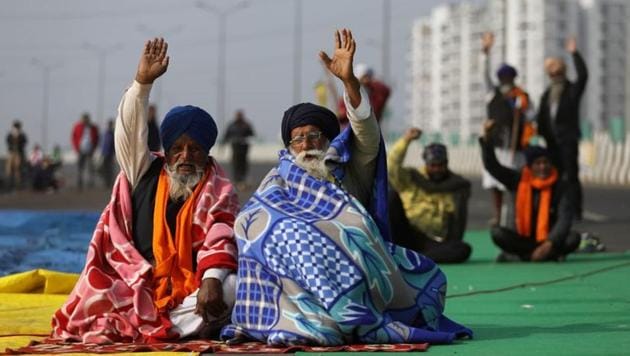Kisan Ekta page taken down due to spam alert after ‘increased activity’, says Facebook
The social networking faced a massive backlash from civil society after the page, which is run by a farmers’ collective, went down late Sunday evening
Facebook on Monday said that Kisan Ekta Morcha’s Facebook page was taken down as increased activity on the page had initiated an automated response against spam content.

“As per our review, our automated systems found an increased activity on the Facebook page www.facebook.com/kisanektamorcha and flagged it as spam, which violates our Community Standards. We restored the page in less than three hours when we became aware of the context. The review showed that only the Facebook page was affected by the automated systems while the Instagram account remained unaffected,” a company spokesperson said.
The social networking faced a massive backlash from civil society after the page, which is run by a farmers’ collective, went down late Sunday evening. It sparked widespread criticism, with farmers saying the move was an attempt to muzzle their voices.
It wasn’t immediately clear why the company took down the website purely based on an automated system alert.
Hindustan Times on Sunday reported that Kisan Ekta Morcha’s Facebook page, less than five days old, had notched up 75,000 followers. The group collects and collates information from different farmers’ unions and posts them across social media.
“Now this is #TooMuchDemocracy. A peaceful protest by #Kissan & @Facebook deletes @Kisanektamorcha Facebook page,” the farmers group tweeted after its Facebook page was taken down. The group also received a restriction on its Instagram account, after which it was not allowed to post videos or photographs. According to Baljeet Singh, the head of the group’s information technology cell, the page was taken down for being in violation of the social media website’s community standards.
“We had posted clips countering Narendra Modi’s speech from day before yesterday,” Singh said on Sunday. “Each of his lies was countered with facts and examples. Subsequently, we started a live broadcast with (Swaraj India’s) Yogendra Yadav and in the middle of the broadcast, the page was taken down.”
After massive outrage, Facebook later restored the page. “The vast majority of our work fighting spam is done automatically using recognizable patterns of problematic behaviour,” the Facebook spokesperson added. “For example, if an account is posting over and over in quick succession that’s a strong sign something is wrong. However, we also rely on our human review team to work on cases where human expertise is needed to understand the context of a particular situation. In Q3, 2020 out of the 1.9 billion pieces of content removed globally for violating our policies on spam, we restored 74.9 mn pieces of content, when we identified issues ourselves.”
A Digital rights activist, however, disagreed with the social networking website’s assessment.
Internet Freedom Foundation trustee and lawyer Apar Gupta said the takedown demonstrated faulty processes that ignore user rights,
“As per the statement issued by Facebook it is evident that human review is not being conducted prior to its algorithms taking down pages. This clearly indicates that the system itself is faulty and requires oversight as well as clear notice and appeal processes prior to page and account takedowns,” he said.
Raman Chima, Asia Pacific Policy Director at Access Now — Facebook’s conduct here shows the tremendous drawbacks of the company’s over-reliance on supposedly automated systems to handle issues relating to content governance. The use of automated tools to regulate content should only be for exceptional cases; not a norm. The actions of platforms have real world consequences on those seeking to exercise their fundamental rights. Despite its repeated statements about the importance of India to it, it does not appear that Facebook is engaged in open, transparent discussion with civil society in India on its practices.






